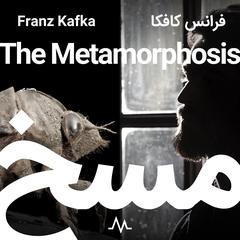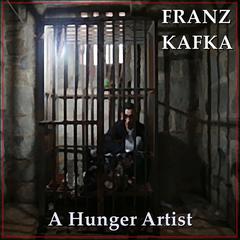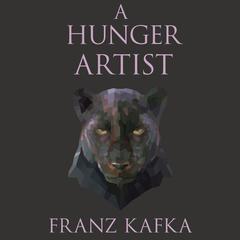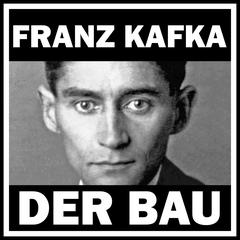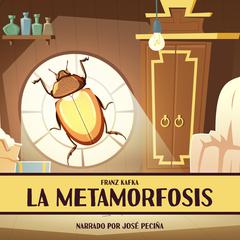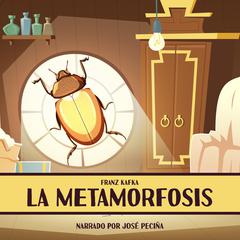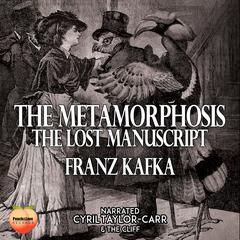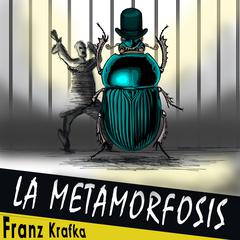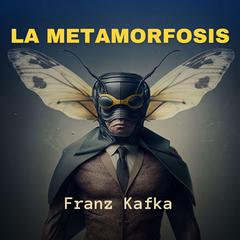 Play Audiobook Sample
Play Audiobook Sample
The Castle Audiobook
 Play Audiobook Sample
Play Audiobook Sample
Quick Stats About this Audiobook
Total Audiobook Chapters:
Longest Chapter Length:
Shortest Chapter Length:
Average Chapter Length:
Audiobooks by this Author:
Publisher Description
On his deathbed, Franz Kafka asked that all his unpublished manuscripts be burned. Fortunately, his request was ignored, allowing such works as The Trial to earn recognition among the literary masterpieces of the 20th century. This brilliant new translation of The Castle captures comedic elements and visual imagery that earlier interpretations missed. A traveler known only as K. is promised a job as Land-Surveyor by officials of the Castle. But when K. arrives in town to claim his position, he learns that owing to a clerical error, his services aren't needed after all. Seeking an explanation, K. endures increasingly frustrating setbacks as he strives in vain to simply make contact with someone-anyone-from the Castle. Saturated with absurdist humor, this haunting novel has fascinated and puzzled readers throughout the world. Some critics praise it as the century's great religious parable, while others interpret it as indisputably antireligious. Critically acclaimed narrator George Guidall sheds light on this dreamlike tale, illuminating the limitless nuances of Kafka's writing.
Download and start listening now!
"Kafka's last novel, "The Castle," was left unfinished. Moreover, scholars continue up to the present day to establish the text of this highly problematic work. Many years ago I read the Muir translation, which was based upon Max Brod's reworking of Kafka's German text. This newer translation of Mark Harmon makes use of the textual work done under the direction of Malcolm Pasley in the 70s and 80s and apparently "restores" much that was not included in the earlier version. Perhaps this newer Harman version accounts for my somewhat different reaction to "The Castle" at second reading, although I confess to being too lazy to scout out the Muir translation and do a careful comparison. At any rate, the Harmon version in some ways seems rougher, and that may well be because he adheres as closely as possible to Kafka's language and punctuation. The message remains intact and all too familiar to anyone who has worked in or against bureaucracies. "The Castle" takes features we all know are a part of bureaucracy and carries them to a nightmarish extreme. No one quite knows how the distant centers of power work and how their demands or requests find their way through the mysterious networks to the people they ultimately affect, but everyone agrees the bureaucracy, however inscrutable, is handling its myriad files with great care, even infallibility. K., the sad protagonist of the novel, has been invited by "The Castle" to act as a land surveyor, but he has no way to penetrate the bureaucracy, indeed cannot ever get beyond obscure secretaries and messengers, and may indeed have been given his appointment by mistake--or not, since the numerous bureaucratic "controls" make mistakes "impossible." This is a novel, at least on the surface, of immense human frustration--the insignificant man pitted against huge, distant forces he will never understand. But all this is fairly obvious. Where my second reading of this novel differed from my earlier reading, which may have something to do with the newer translation, is that this time I felt the protagonist was actually less frustrated, at least by the end of the novel, than I had remembered. While K. is trying to find his way into the castle, he has a series of relationships which begin to create for him a new life in the village. Slowly, at least so it seems to me, his obsession is blunted somewhat as he turns to more immediate relationships, mostly with women. By the end, he is even caught up in the originally antagonistic landlady's interests in clothing, of all things. In other words, life actually goes on, and relationships develop, while we are waiting for the higher powers to deal with our files. In some ways, the very slow, tangled procedures of bureaucracy make it less and less relevant to our mundane existence. Ultimately we push the mysterious bureaucrats into the back of our minds and find some little niche where we can live on, if not happily at least less miserably. This is not a message usually associated with Kafka, but it somehow was what struck me in this recent rereading."
— Stephen (4 out of 5 stars)
Quotes
-
“Shows a more comic Kafka…Harman has also made it more faithful to Kafka’s dreamlike style.”
— New York Times -
“Will decisively alter our understanding of Kafka and render previous editions obsolete.”
— Times Literary Supplement -
“Had one to name the author who comes nearest to bearing the same kind of relation to our age as Dante, Shakespeare, and Goethe bore to theirs, Kafka is the first one would think of.”
— W.H. Auden -
“This edition of Kafka’s terrifying and comic masterpiece is the product of an international team of experts who went back to Kafka's original manuscript and notes to create a text that is as close as possible to the way the author left it. The translation closely follows the fluidity and breathlessness of the sparsely punctuated original manuscript, revealing levels of comedy, energy, and visual power that have not been previously accessible to English-language readers.”
— Book News
Awards
-
An AudioFile Earphones Award winner
The Castle Listener Reviews
-
" This book is funny. I like how the people move. "
— Ofelia, 2/18/2014 -
" I had to force myself to finish this. I gave it one star, not because I think it was badly written, but because I just did not enjoy reading it. Seeing how much other people have enjoyed I feel slightly stupid, but at least I can say I finished it. Everyone has different tastes and some may dislike the books I love. "
— Annie, 2/12/2014 -
" Though it was a complex book to get through, many of the situations K. incountered with the offices and officials of the Castle are similar to the problems we currently face oursleves. "
— Veronica, 2/10/2014 -
" As much as I liked "the Trial" for reasons unkown, I didn't really like "the Castle." Here's why: I love Campbell's concept of the Hero's Journey. In the Castle, the "hero" (if K can be called that) sets out on a Journey - but one with no point, reason or meaning. And he continues his journey through the book - never getting any closer to his goal, getting lost along the way in an unimportant dreamscape. I think I get some of the morals to the story (life is a never-ending shitheap that just seems to keep going and going, and never gets us anywhere, and in the end, we just stop - without an ending at all). Maybe I just like an ending to my books and "
— Richard, 2/9/2014 -
" WORST CLIFFHANGER EVER "
— Stephen, 2/7/2014 -
" Flashes of Kafka's humor and paranoia in this choppy and unfinished novel. "
— Aaron, 2/5/2014 -
" It's a difficult read, yet if you take some time you will start to feel the athmosphere and it will turn out to be one of Kafka's most beautiful (unfinished) novels. "
— Juliane, 1/30/2014 -
" My absolute favorite of Kafka's novels. This translation is perfectly excellent. Completely riveting and totally bizarre. I adore it. "
— Steph, 1/24/2014 -
" A very difficult read, but whenever I re-read this book I will be sure to find something new and thought-provoking. "
— Jane, 1/19/2014 -
" Not as strong as The Trial in my opinion. "
— Sean, 1/15/2014 -
" sigh. not his best work, for obvious reasons. it was going somewhere, however. "
— Justin, 12/20/2013 -
" I first read this book a long time ago, so revisiting this classic after so many years, I was curious how I'd connect with it. The story is about K, a land surveyor, who comes into this village, but must have permission from the Castle to stay. Everything is sanctioned by the Castle, and K tries in various ways to connect with the officials from the Castle. But the Castle is as baffling as modern corporations and all effots fail to actually reach anyone in the Castle, though K does eventually get confirmation that he is at least employed by the Castle. K is so obsessed with connumicating to the officials in the Castle, he treats people around him with little thought, and eventually his assistants, sent by the Castle, quit. One is very ill and blames it on K who left them to freeze outside one night. They confess that when they took the job neither one knew anything about surveying but the officials at the Castle had told them they were only supposed to cheer K up, because he took things to seriously. I really like Kafka's subtle humor throughout his books, and since this isn't a finished novel, even the fragments and sections deleted by the author are interesting. "
— Debra, 12/20/2013 -
" Good Lord, why did I slog through all ten CD's of this unfinished novel? It's bad when one accidentally skips the penultimate disc and doesn't notice until the book ends. "
— Jonathan, 12/16/2013 -
" No I don't want to live in the castle. "
— Jan, 11/28/2013 -
" Frustrating to read because the characters are ultimately doomed yet the struggle to achieve any progress is the beauty of the book and makes it worth the read. "
— Jasmine, 10/7/2013 -
" This book made me want to kill myself. Fortunately, I emerged back to reality on time. "
— Bianca, 8/20/2013 -
" wow! what was it? whats the aim of this book? what were the thoughts of Kafka upon writing this up? Out of my gusto... Didn't get any expreriance from the book at all... As the strong inteligence is very clear of Kafka, i give a three... "
— Rose, 8/19/2013 -
" vermoeiend maar boeiend "
— Hans, 7/28/2013 -
" The Trial was better... "
— Brandon, 7/1/2013 -
" Marvelous. A novel of irreconcilable metanarratives. "
— Connie, 5/1/2013 -
" I guess he didn't finish it because it is best left unfinished, because how could one possibly finish the in-your-face absurdity of life while alive? "
— Nikzad, 1/26/2013 -
" non adoro kafka... "
— Samantha, 12/12/2012 -
" WORST CLIFFHANGER EVER "
— Stephen, 8/9/2012 -
" This translation is a terrible mistake, except for scholarly purposes. Harman's slavish approach and lack of ear combine to make the novel nearly unreadable. "
— Robert, 5/14/2012 -
" It was good, but not great. "
— Steve, 12/14/2011 -
" I got through it and hated every moment. "
— Ruby_blue, 11/16/2011 -
" hmmm, wir werden nicht 100% warm miteinander, kafka und ich... "
— Claudia, 5/13/2011 -
" Terminar este libro fue como despertarse de golpe de una pesadilla. Perturbador, angustioso y absurdo, absolutamente kafkiano. "
— Carola, 5/11/2011 -
" Terminar este libro fue como despertarse de golpe de una pesadilla. Perturbador, angustioso y absurdo, absolutamente kafkiano. "
— Carola, 5/11/2011 -
" SUDDENLY THE ADJECTIVE "KAFKAESQUE" MAKES SO MUCH MORE SENSE! <br/> <br/>... <br/> <br/>But, no really, this appears to be a really accurate translation. I can see why Kafka gave up writing it though. It's a pretty great idea, but, oh how it drags. "
— Conor, 5/3/2011 -
" SUDDENLY THE ADJECTIVE "KAFKAESQUE" MAKES SO MUCH MORE SENSE! <br/> <br/>... <br/> <br/>But, no really, this appears to be a really accurate translation. I can see why Kafka gave up writing it though. It's a pretty great idea, but, oh how it drags. "
— Conor, 5/3/2011 -
" It was fairly dense, and not particularly compelling/interesting in my opinion. Add to that the fact that it's unfinished and I didn't really care whether I got to the end or not. "
— Camille, 4/6/2011 -
" It was fairly dense, and not particularly compelling/interesting in my opinion. Add to that the fact that it's unfinished and I didn't really care whether I got to the end or not. "
— Camille, 4/6/2011 -
" The first 100 pages are what is described by all summaries of this book and is the only part worth reading. "
— Peter, 3/23/2011 -
" The first 100 pages are what is described by all summaries of this book and is the only part worth reading. "
— Peter, 3/23/2011 -
" Audiobook version with George Guidall narrating. <br/>(Is there a George Guidall fanclub? Can I join?) <br/> <br/>2 stars for the book itself (I really like a lot of Kafka; I'm surprised by my dislike for this) <br/> <br/>5 stars for the audiobook production. "
— Brad, 3/8/2011 -
" Audiobook version with George Guidall narrating. <br/>(Is there a George Guidall fanclub? Can I join?) <br/> <br/>2 stars for the book itself (I really like a lot of Kafka; I'm surprised by my dislike for this) <br/> <br/>5 stars for the audiobook production. "
— Brad, 3/8/2011 -
" Well, it certainly is Kafkaesque! Nobody is sure what is happening and nothing is what it appears to be - or is it? I liked it, but not as much as other Kafka. "
— Bob, 3/3/2011 -
" Well, it certainly is Kafkaesque! Nobody is sure what is happening and nothing is what it appears to be - or is it? I liked it, but not as much as other Kafka. "
— Bob, 3/3/2011 -
" Especially if you ever find yourself working in large organisations from time to time, this book is mandatory reading.<br/><br/>I try to re read this at least once a decade. "
— Mark, 2/23/2011 -
" Especially if you ever find yourself working in large organisations from time to time, this book is mandatory reading.<br/><br/>I try to re read this at least once a decade. "
— Mark, 2/23/2011 -
" if this is not the most vertiginous example of absurdist art ever composed then i don't know what it is. i vomited. "
— marc, 2/16/2011 -
" if this is not the most vertiginous example of absurdist art ever composed then i don't know what it is. i vomited. "
— marc, 2/16/2011 -
" too bad it's unfinished :/ "
— Lana, 2/15/2011 -
" An infuriating and brilliant book. I give it only two stars because it is hardly an enjoyable reading experience, but give Kafka credit for clearly defining the maddening frustration engendered by bureaucracy disassociated from human beings. "
— Robert, 1/30/2011 -
" An infuriating and brilliant book. I give it only two stars because it is hardly an enjoyable reading experience, but give Kafka credit for clearly defining the maddening frustration engendered by bureaucracy disassociated from human beings. "
— Robert, 1/30/2011 -
" A tad slow and not much story to it. Could have boiled it down to a 150 pages less I thought. "
— Nick, 1/10/2011 -
" A tad slow and not much story to it. Could have boiled it down to a 150 pages less I thought. "
— Nick, 1/10/2011
About Franz Kafka
Franz Kafka (1883–1924), one of the major fiction writers of the twentieth century, was born to a middle-class German-speaking Jewish family in Prague. His unique body of writing, much of which is incomplete and was mainly published posthumously, is considered by some people to be among the most influential in Western literature, inspiring such writers as Albert Camus, Rex Warner, and Samuel Beckett.
About George Guidall
George Guidall, winner of more than eighty AudioFile Earphones Awards, has won three of the prestigious Audie Award for Excellence in Audiobook Narration. In 2014 the Audio Publishers Association presented him with the Special Achievement Award for lifetime achievement/ During his thirty-year recording career he has recorded over 1,700 audiobooks, won multiple awards, been a mentor to many narrators, and shown by example the potential of fine storytelling. His forty-year acting career includes starring roles on Broadway, an Obie Award for best performance off Broadway, and frequent television appearances.














